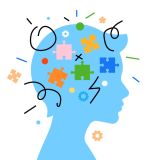In this article:
What is a Child Psychology Degree?
A child psychology degree focuses on understanding how children grow and develop emotionally, mentally, and socially from birth to adolescence. The program covers topics like child behavior, developmental stages, mental health issues in children, and how things like family and environment affect a child’s growth. Students also learn how to assess, diagnose, and treat psychological problems in children, such as learning disabilities, anxiety, and behavior issues.
Along with basic psychology courses, students also study child development theories, therapy techniques for working with children, and the ethical concerns of working with young clients. The program emphasizes the importance of building strong relationships with children and their families to offer effective support and care.
Program Options
Program options for a child psychology degree vary depending on the level of education and the specific focus areas within child psychology. Here are some common program options you might encounter:
- Associate of Science (AS) in Psychology with a Focus on Child Development: This program introduces students to the basics of psychology with a specific focus on child development. It is ideal for those who want to work in entry-level positions in child care or support roles in schools or community organizations.
- Bachelor of Arts (BA) or Bachelor of Science (BS) in Psychology with a Focus on Child Psychology: An undergraduate program that provides students with a solid foundation in psychological theories and practices, while focusing on the development and mental health of children. It prepares students for roles such as child care workers, teaching assistants, or positions in child welfare agencies.
- Master of Science (MS) or Master of Arts (MA) in Child Psychology: A graduate program that provides advanced training in understanding and treating psychological issues in children. It includes coursework on developmental psychology, mental health assessments, and therapeutic interventions, and prepares graduates for roles as child psychologists, counselors, or therapists.
- Doctor of Psychology (PsyD) in Child Psychology: A professional doctoral degree that focuses on clinical training and prepares students to work directly with children in a therapeutic setting. The program emphasizes treatment techniques, diagnosing mental health conditions, and providing psychological care to children.
- Doctor of Philosophy (PhD) in Child Psychology: A research-focused doctoral degree that combines advanced clinical training with the opportunity to conduct research in child development and mental health. Graduates often pursue careers in academia, research, or high-level clinical practice.
Skills You’ll Learn
In a child psychology degree program, students gain a variety of skills related to understanding and supporting children’s emotional, cognitive, and social development. Key skills learned include:
- Child Development Knowledge: Understanding the various stages of child growth, including emotional, cognitive, and physical development from infancy through adolescence.
- Assessment and Diagnosis: Learning how to assess and diagnose mental health conditions in children, such as anxiety, ADHD, and developmental delays, using age-appropriate tools and techniques.
- Therapeutic Techniques: Developing skills in various therapeutic methods, such as play therapy, cognitive-behavioral therapy (CBT), and behavioral interventions tailored for children.
- Communication Skills: Gaining the ability to communicate effectively with children, understanding their unique ways of expressing thoughts and feelings, and communicating with parents and caregivers.
- Problem-Solving: Learning how to help children and their families navigate challenges and find solutions to behavioral or emotional issues in a constructive manner.
- Cultural Competence: Understanding how culture, environment, and family dynamics influence a child’s development, and learning how to approach treatment in a culturally sensitive way.
- Crisis Intervention: Learning how to handle emotional crises and provide immediate support for children dealing with trauma, abuse, or other acute issues.
- Ethical and Legal Knowledge: Understanding the ethical considerations and legal requirements of working with children, ensuring privacy, consent, and appropriate care in various settings.
What Can You Do with a Child Psychology Degree?
With a child psychology degree, you can pursue various careers in fields that involve working directly with children, families, and communities. Some options include:
- Child Psychologist: Assess and treat emotional, behavioral, and developmental issues in children, providing therapy and support in a clinical or private practice setting.
- School Psychologist: Work in schools to assess and support students’ mental health and learning needs, helping to address issues like bullying, academic stress, and emotional challenges.
- School Counselor: Offer guidance and counseling to students in schools, helping with emotional and social challenges, as well as academic concerns.
- Emotional and Behavioral Disorders Teacher: Work with children who have emotional and behavioral disorders, helping them manage their emotions, improve social skills, and succeed academically.
- Marriage and Family Therapist: Focus on helping families improve communication and resolve conflicts, while also supporting children through family-based therapy.
- Social Worker: Assist families and children by connecting them with resources, providing support, and advocating for the well-being of children in need.
- Play Therapist: Use play-based techniques to help children express their feelings, develop coping strategies, and work through emotional difficulties in a therapeutic setting.
- Parent Educator: Provide guidance to parents on child development, effective discipline strategies, and ways to support their children’s emotional and social well-being.

